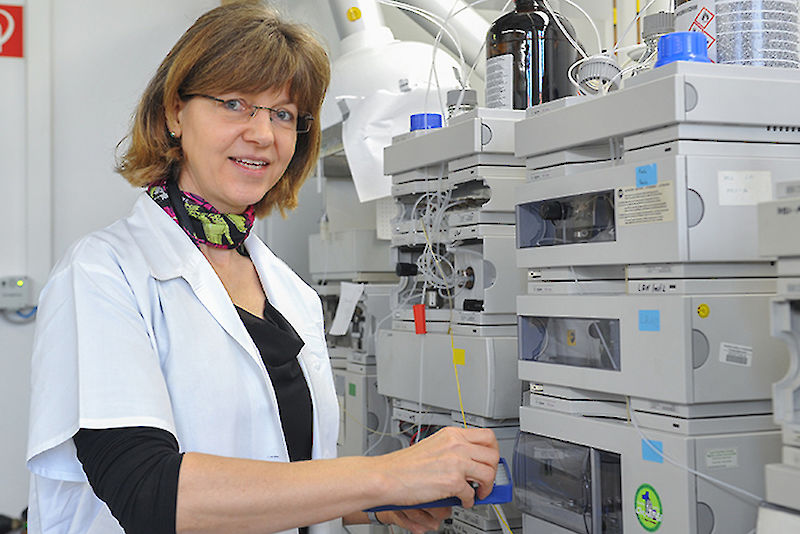“nutriCARD” aims to make food healthier

When foods are manufactured, the primary concern is not necessarily ensuring that they are healthy. “Take white bread, for example. For a long time, the industry was proud of its ability to manufacture white, bran-free flour,” says Professor Gabriele Stangl, who coordinates the “nutriCARD” project at the University of Halle. “That was until nutrition experts realised how important fibre is for our health.” Since then, the range of wholegrain products has been rising steadily.
Vitamin D from the henhouse?
The researchers began their work in May of this year. The BMBF will channel almost 5 million euros into the joint project over the first three years. More than 70 partners, including businesses and non-university research institutions, are already involved. While the Leipzig researchers are currently testing ways of reducing and replacing saturated fatty acids in sausage, the team in Jena are researching the potential of unsaturated Omega 3 fatty acids to reduce blood pressure. Meanwhile, Gabriele Stangl is working with doctors from University Hospital Halle to investigate how high levels of phosphate in foods affect the heart, and whether a lack of vitamin D impairs heart function.
As part of a second project, Stangl is looking at increasing levels of light in henhouses to boost the vitamin D content of eggs. This is because low vitamin D levels are connected to cardiovascular diseases and to numerous other illnesses such as cancer, muscle weakness and certain autoimmune diseases. Apparently, over half of the German population do not receive enough vitamin D during the winter. Humans need to be exposed to sunlight in order for their bodies to produce enough vitamin D. As things currently stand, it is extremely difficult to get sufficient quantities of the vitamin from food. For now, food supplements are the only solution. “But we often can’t reach the people who really need them,” says Stangl.
Eggs rich in vitamin D could be one answer to the problem. Chickens, like humans, can produce more vitamin D if they are exposed to more sunlight. Professor Stangl and her team of researchers aim to take advantage of this. At the moment, they are observing how chickens react to ultraviolet light. “We’re basing the work on a day with three to six hours of sunlight,” she says, emphasising that the birds are free to choose whether or not to sit under the light source. The first tests showed that the light does not change the chickens’ behaviour. “It doesn’t seem to bother them, at least,” she says. The next step is to try the experiment in a large henhouse in the region.
Collaborating with regional businesses at an early stage is a key feature of the competence cluster. With this in mind, a dedicated innovation office led by nutritional scientist Dr Toni Meier has been set up on the Weinberg Campus. “Toni Meier seeks and maintains contact with regional businesses via the office,” says Stangl. The “nutriCARD” researchers plan to use questionnaires to learn more about the companies’ interests and expectations. This will allow them to identify specific starting points and work out what form collaboration could take.
Reducing people's salt intake
The BMBF will conduct an evaluation of the cluster after three years. Professor Stangl can already name one of the main issues that the researchers want to address if they receive a second round of funding: reducing the salt content of food. “We know that the high levels of salt found in foods being produced today lead to high blood pressure in many people and therefore also increase the risk of developing many types of cardiovascular disease. Therefore, we want to find out how much salt we can remove from food without affecting the taste.”
Professor Stangl explains that the United States has already succeeded in reducing the salt content of its food, thanks to an agreement reached with the food industry. To achieve comparable success in Central Germany, the researchers aim to consolidate their work after the project's completion by setting up a Central German institute for nutrition research.

